How To Pack Smart For A Motorcycle Road Trip
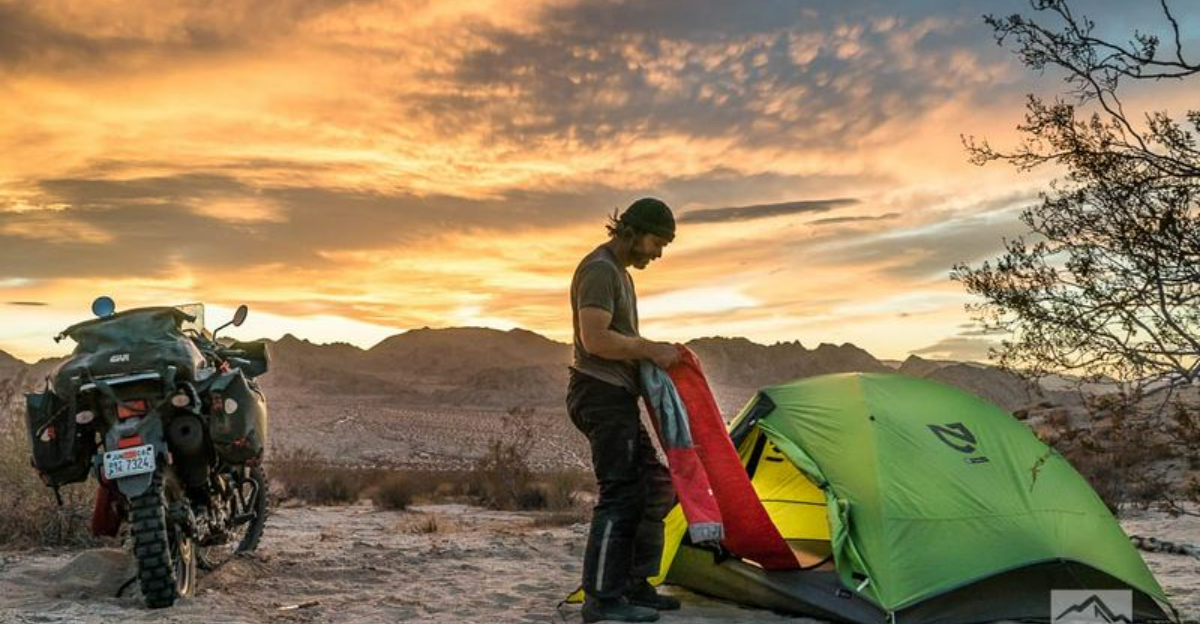
Hitting the open road on your motorcycle creates memories that last a lifetime. But without smart packing, your adventure can quickly turn into a struggle. I’ve learned through many trips that bringing the right gear while keeping weight balanced is key.
Let me share my top packing tips to help make your next motorcycle journey comfortable, safe, and truly enjoyable.
1. Choose Proper Luggage Systems
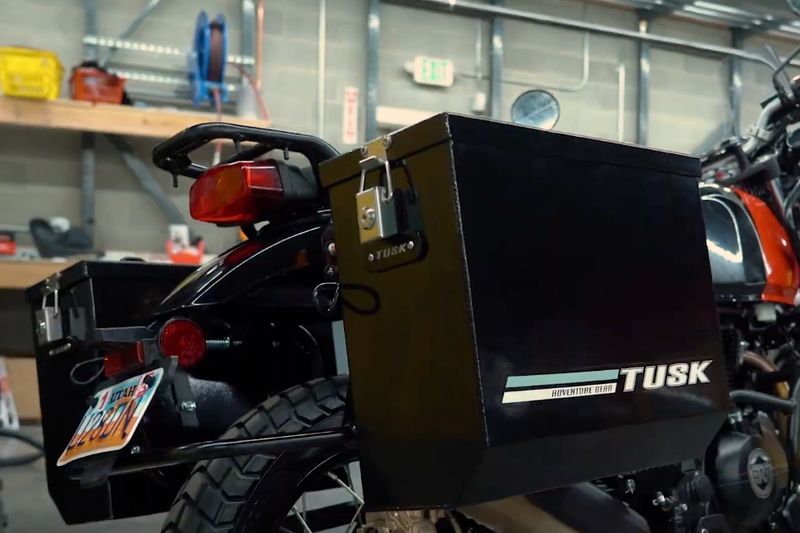
Hard panniers or soft saddlebags? Your choice makes a huge difference in how much you can carry and how your bike handles. I prefer hard cases for security and waterproofing, while soft bags offer flexibility for oddly shaped items.
Weight distribution matters tremendously. Always place heavier items low and toward the center of the bike to maintain stability at highway speeds. Many riders overlook this detail until they feel their bike wobbling on the first curve!
2. Layer Your Clothing Strategically
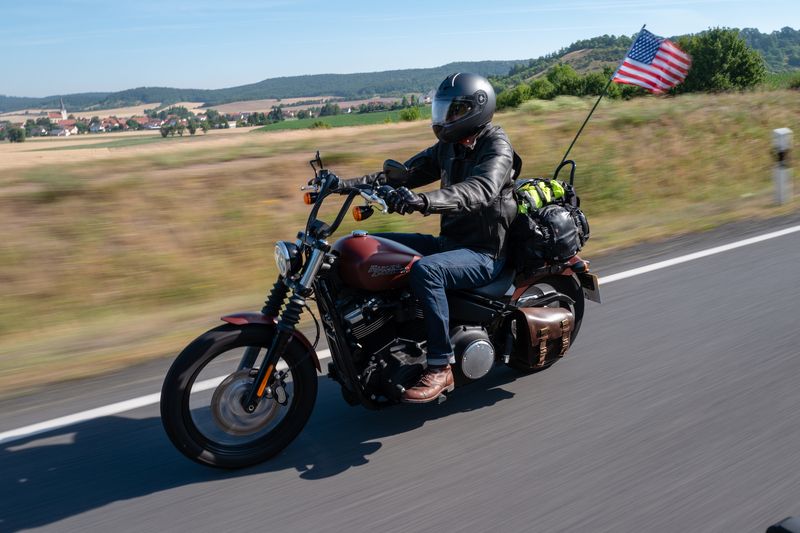
Weather can change dramatically during long rides, especially through mountain passes or different climate zones. I pack clothing in layers that can be added or removed easily rather than bulky single items.
Rolling clothes instead of folding saves incredible space in your bags. For a week-long trip, three shirts, two pants, and five sets of underwear are typically sufficient. Quick-dry fabrics are worth the investment – they’re lightweight and can be washed in a sink and dry overnight.
3. Invest in Multi-Purpose Gear
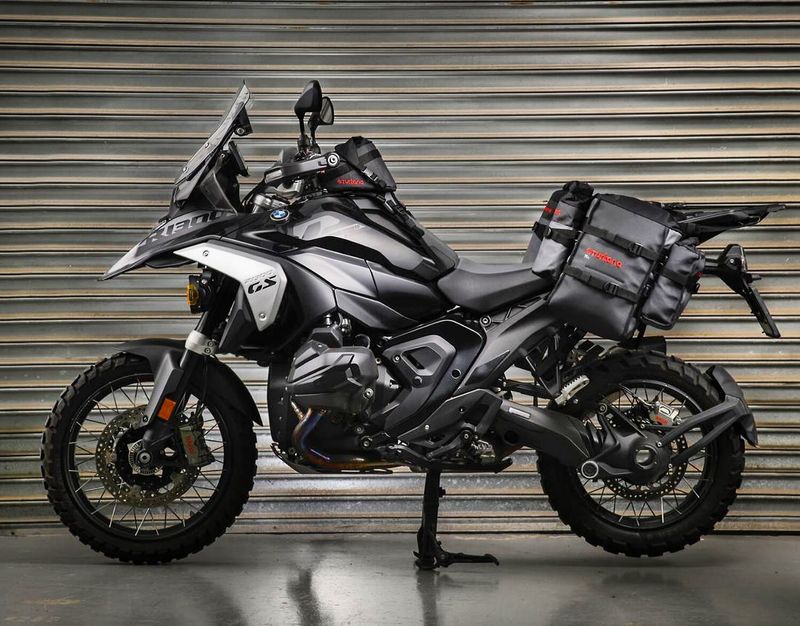
Every ounce matters when packing a motorcycle! My favorite multi-purpose items include a bandana (neck warmer, face mask, pot holder), a quality multi-tool, and convertible pants with zip-off legs.
Swiss Army knives or Leatherman tools eliminate the need for separate screwdrivers, can openers, and knives. Microfiber towels take minimal space yet absorb impressive amounts of water. Look for items that serve at least two purposes – you’ll thank yourself when navigating tight mountain switchbacks with a perfectly balanced bike.
4. Pack a Compact First Aid Kit
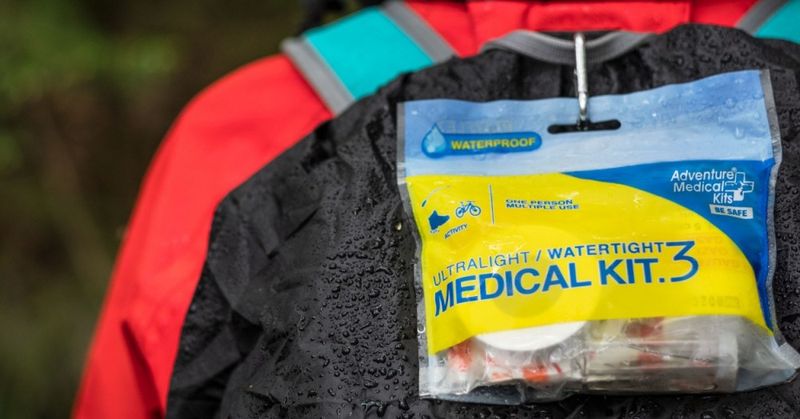
Medical help might be hours away on remote stretches of road. I always carry a motorcycle-specific first aid kit containing bandages, antiseptic wipes, pain relievers, and blister treatment.
Add personal medications and emergency contact information. Vacuum-sealed first aid supplies take up minimal space yet could literally save your life. Some riders ignore this essential item to make room for luxuries, but I’ve needed mine more than once, especially for minor cuts and scrapes that could otherwise become infected on multi-day journeys.
5. Bring Essential Tools and Parts
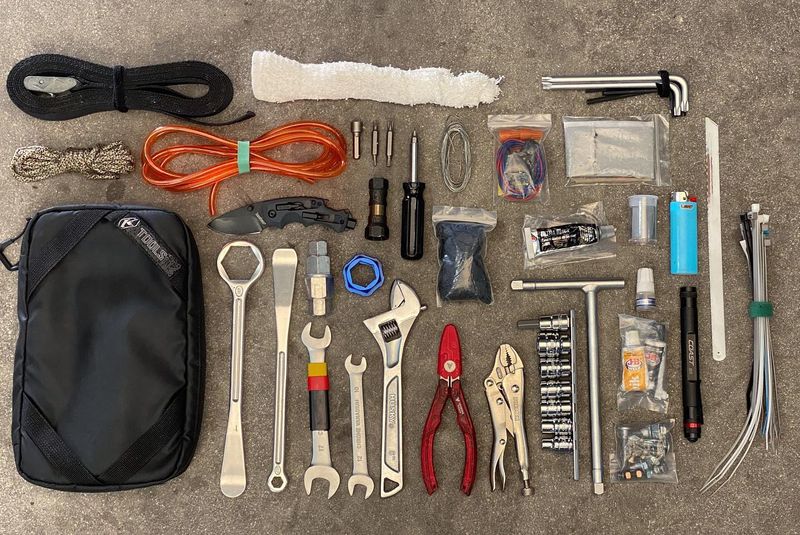
Roadside repairs happen to even the most reliable bikes. My must-have tool kit includes tire repair supplies, a compact air pump, adjustable wrench, and spare fuses. These basics have saved countless trips from early endings.
Know your motorcycle’s common failure points. For my Triumph, I always pack a spare clutch cable since they’re known to snap. A headlamp is absolutely necessary for nighttime repairs. The key is balancing preparedness against weight – focus on items that address the most likely problems for your specific bike model.
6. Use Compression Bags for Soft Items
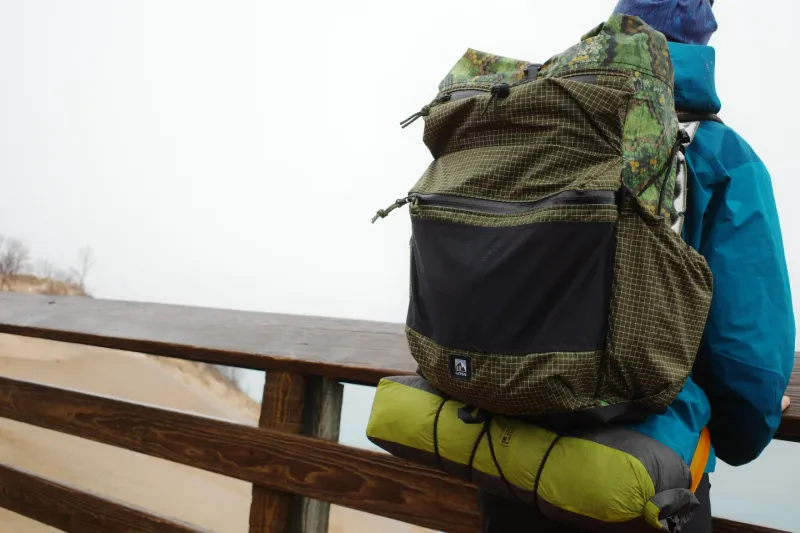
Vacuum compression bags are absolute game-changers for motorcycle packing! My sleeping bag and puffy jacket shrink to half their normal size, creating precious extra space in limited luggage.
Heavy-duty zip-lock bags work wonderfully for clothes and can double as waterproof protection during unexpected downpours. For extended trips, I separate clean clothes from dirty ones using different colored bags. Remember that compression bags don’t reduce weight – they just create more space, so don’t be tempted to overpack just because you can fit more!
7. Plan Your Electronics Carefully
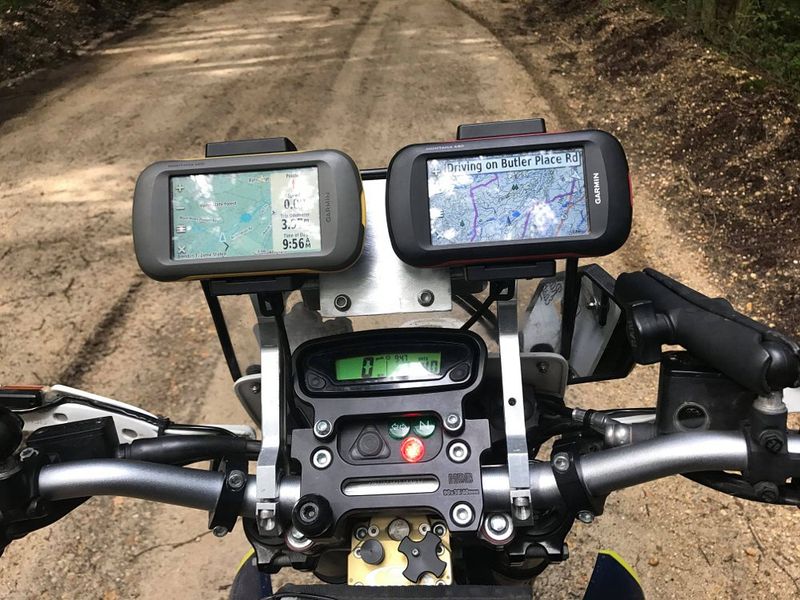
Power access can be limited on the road. I’ve learned to bring only essential electronics with multi-day battery life. A smartphone with offline maps, a small power bank, and perhaps a camera are typically sufficient.
Consider how you’ll charge devices. Some riders install USB ports directly on their motorcycles, while others rely on portable solar chargers. Waterproof cases protect electronics from rain and vibration damage. Remember that cold temperatures drain batteries faster, so keep devices close to your body in chilly weather to maintain their charge longer.
8. Pack Smart Camping Gear
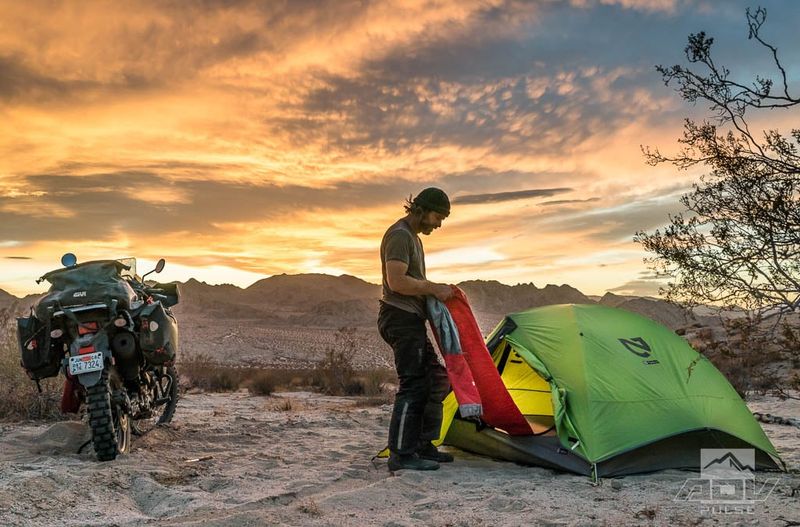
Freedom to camp anywhere is one of motorcycling’s greatest joys! Ultralight backpacking gear works perfectly for motorcycle camping. My one-person tent weighs under three pounds yet stands up to serious weather.
A small camp stove, titanium pot, and inflatable sleeping pad create comfort without bulk. Freeze-dried meals save both space and cooking time after long riding days. Avoid traditional camping luxuries like chairs and large coolers. Instead, use your motorcycle gear creatively – a rolled jacket makes a decent pillow, and your helmet can protect food from critters overnight!
9. Weatherproof Everything
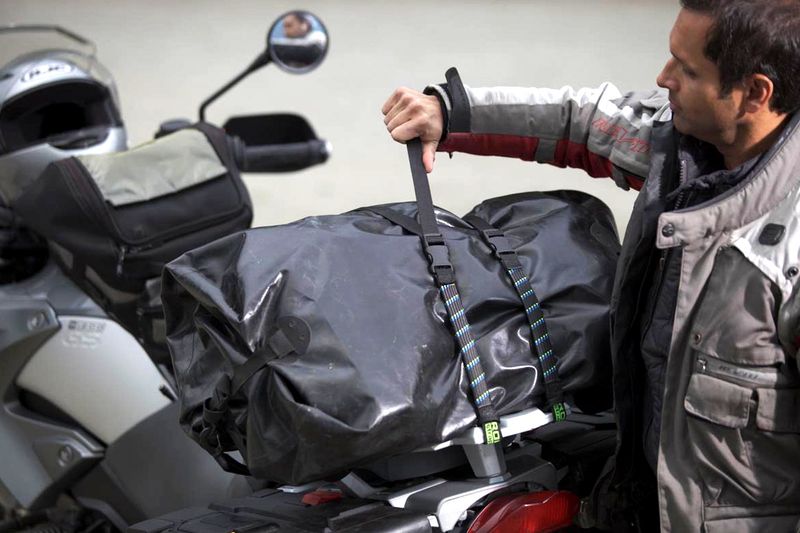
Rain will find you eventually on long motorcycle journeys. Even “waterproof” luggage can leak at seams during sustained downpours. I double-protect important items like documents and electronics in sealed plastic bags.
Keep rain gear accessible at the top of your luggage or in a tank bag pocket. Nothing’s worse than getting soaked while digging for rain pants! A small pack towel helps dry seats and luggage after rain stops. For desert riders, consider dust protection too – fine particles penetrate almost everything and can damage camera equipment and electronics.
10. Create a Logical Packing System
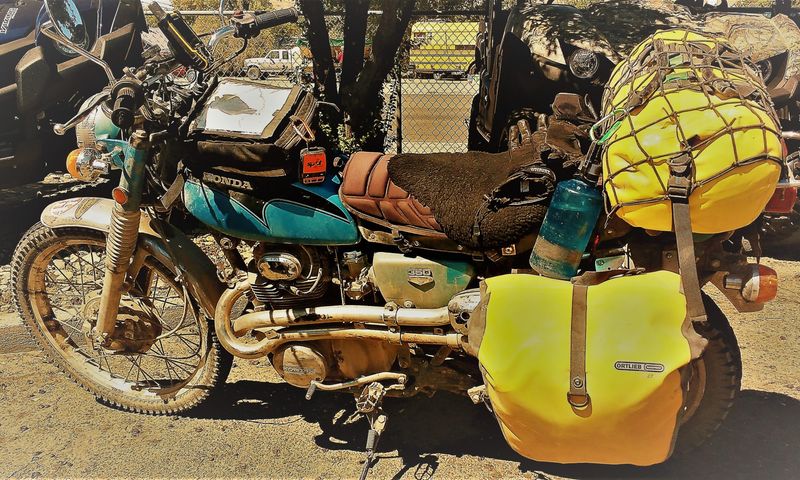
Consistency saves time and frustration on the road. I pack the same items in the same places every trip, creating muscle memory for finding things quickly. Frequently needed items stay in easily accessible spots like tank bags.
Color-coded stuff sacks help identify contents without unpacking everything. Emergency items deserve dedicated spaces you can reach instantly. Taking photos of your packed bags before departure helps remember your system if you need to repack in a hurry.
This organization might seem excessive before departure, but pays enormous dividends after long, tiring days of riding.
